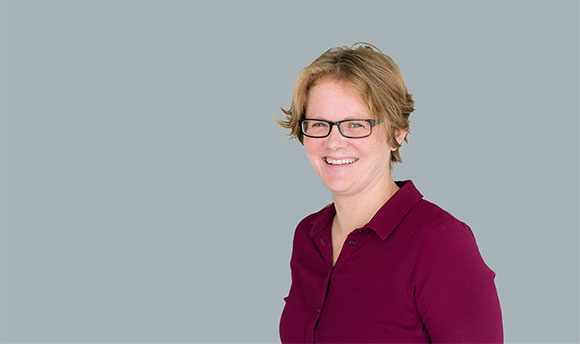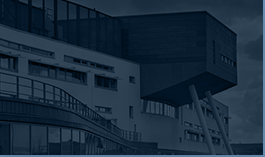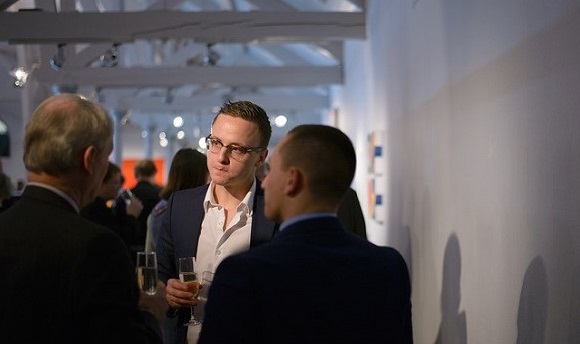Entry to this course is no longer available for September 2025. Applications for September 2026 will open later in the year.
Therapeutic Radiography (Pre-Registration) - MSc
If you have a degree and are looking for a career change into a rewarding profession with excellent employment rates, why not consider becoming a therapeutic radiographer?
This MSc in Therapeutic Radiography (Pre-Registration) course will enable graduates to refocus their career in only two years, and on completion you will be able to apply for registration with the Health and Care Professions Council (HCPC) to work as a therapeutic radiographer.
The course will allow you to develop the technical, interpersonal and professional knowledge required to work as a therapeutic radiographer and will include a range of practical and theoretical learning.
Delivered full-time, the course has a clinical and health promotion focus. It includes two practice placements.
Please note that this course is going through a routine re-validation process over the next year and that any changes to course content arising will be reflected on this web page.
Why QMU?
- Our reputation: Therapeutic radiography education at QMU is well established, extremely popular and well respected throughout the profession.
- Employability: Our graduates are well prepared to embark on their career and the course has excellent graduate employability rates.
- Staff expertise and experience: The teaching team includes three registered therapeutic radiographers who have strong links with the profession within Scotland and across the UK and have a range of experience.
- Placements: Clinical placements will be facilitated by five sites within Scotland providing a wide range of clinical experience.
- Professional accreditation/registration: The course is accredited by the College of Radiographers. Successful completion will enable application for registration with the Health and Care Professions Council (HCPC), a requirement for employment in the NHS.
Studying MSc Therapeutic Radiography
On this course you will develop the required skills to qualify as a therapeutic radiographer, allowing you to prepare, plan and deliver radiotherapy treatment for patients with cancer.
To achieve this, you will learn about different aspects of oncology, including diagnosis of tumors and the different treatment options available. You will also consider the wider aspects of treatment including safety, planning and developments in practice as well as the appropriate patient management.
Students on this course will complete a number of modules that integrate anatomy, physiology, radiotherapy physics and radiotherapy practice. You will have the opportunity to put this knowledge into practice in a range of tutorial, workshops and clinical placements.
You will also develop your knowledge in the area of research and undertake a final dissertation.
Structure and exit awards
You must complete the full MSc (340 credits) and pass the competency-based practice placements to be eligible to register with the Health and Care Professions Council (HCPC).
Single-module study is not available.
Teaching, learning and assessment
The course delivers theoretical and practical campus-based learning with three integrated periods of practice-based learning.
Academic study is learner centered with analysis and synthesis of knowledge being of paramount importance. You will be expected to take overall responsibility for your learning. Teaching methods will include keynote lectures, clinical workshops and tutorials, student-led seminars, group discussions, clinical observation and practice. Directed learning materials will be delivered via a virtual learning environment (the HUB) and comprise reading, self-assessment methods, videos and lecture slides. Clinical skills will be developed in radiotherapy departments around Scotland.
A variety of assessment structures will be used including online examinations, self appraisal, course work, ePortfolio, viva voce, examinations, presentations and clinical assessment.
Placements
Placements will take place within the five centres within Scotland, with the opportunity to undertake a 2-week elective in Year Two.
Specialist facilities
QMU offers a variety of modern spaces for use by both our Master of Radiography: Therapeutic (MRad) and MSc Therapeutic Radiography (Pre-Registration) courses. We have a range of equipment available to simulate different aspects of the clinical environment. Our clinical rooms include positioning lasers and a range of immobilisation equipment to allow us to replicate patient positioning and set up scenarios. We also have our computer planning suite which allows us to plan radiotherapy treatments, explore image verification and patient management. Students have access to numerous anatomy models which are incorporated into their learning during practical sessions and can be used during self-directed study sessions.
Teaching hours and attendance
Each module you study will be made up of attendance in class and independent work. The structure of each module is different with different attendance requirements for each timetabled module.
Attendance at professional modules is monitored to ensure safety working in the clinical environment. Students will normally complete the course via a full-time route and clinical placements will take place within the normal working day of a therapeutic radiographer (Monday to Friday, full time).
Class sizes
Normally 10-12 students are enrolling on the course each year. Most of the classes are delivered with our undergraduate Master of Radiography: Therapeutic (MTRad) students with some classes delivered across the division with Master of Physiotherapy (MPhys) and Master of Podiatry (MPod) students.
Teaching staff
You can read more about the teaching staff on this course at the bottom of this page. Please note that teaching staff is subject to change.
You will study the following modules:
- Introduction to Radiotherapy Practice (40 credits): This module will develop your knowledge base with regard to person-centred practice, cancer management principles and processes, scientific principles and radiation protection detailed in the modular content.
- Fundamental of Radiotherapy Practice (20 credits): This module will enable you to develop a knowledge base with regard to person-centred practice and the ability to relate anatomy, physiology and the scientific and technological principles of radiotherapy to the treatment procedures detailed in the module content.
- Less Commonly Occurring Cancers (40 credits): This module aims to enable development of thorough knowledge and critical understanding of the processes involved in safe and accurate delivery of radiotherapy treatments and to develop an ability to critique standards, monitor practice and appreciate the need for informed practice.
- Cross Sectional Imaging Science (20 credits): This module aims to develop the ability to critically evaluate concepts and scientific principles of specialist equipment and associated cross-sectional anatomy, pathology and image quality related to Computed Tomography and Magnetic Resonance Imaging.
- Advancing Practice in Radiotherapy (20 credits): This module aims to facilitate an understanding of advanced practice techniques and specialist roles within radiotherapy, considering the development and transferability of skills and impact on the service.
- Preparing for Practice as an Allied Health Professional (20 credits): This module aims to explore factors that shape and influence the provision of health and social care by the allied health professions
- Leadership and Enterprise in Health Practice (20 credits): This module aims to critically evaluate the concepts of leadership and leading change, intra/entrepreneurship and innovation within the health and social care sector and explore opportunities for leading and developing enterprising ideas for health and well-being.
- Understanding and Appraising the Evidence for Practice (20 credits): The aim of the module is to support you to develop an in-depth understanding of approaches to research, to apply knowledge in order to critically appraise evidence and to form reasoned conclusions and to develop the research skills and knowledge necessary to undertake an independent research project
- Applying Skills of Critical Enquiry (project) (20 credits): The module aims to enable you to develop and apply the skills of research and enquiry to produce a small-scale study which demands a professional approach, academic rigour, independence and self direction.
- Radiotherapy Practice-based Learning: Placement 1 (60 credits): This module aims to enable successful integration into the multidisciplinary team and development of a holistic, safe and effective approach radiotherapy practice.
- Radiotherapy Practice-based Learning: Placement 2 (60 credits): This module aims to enable critical appraisal of all aspects of the role of the radiographer and the environment in which the profession is practiced to enable integration of communication, clinical and problem solving skills with theoretical studies. To demonstrate professional competence in therapeutic procedures and to recognise the relevance and implications of quality assurance systems and resource management.
Career prospects on completion of the course are good with the opportunity to seek employment throughout the UK and Ireland.
Entry requirements
A good honours degree (normally second class or above). An application should illustrate what has been done by the applicant to research and understand more about the role of a therapeutic radiographer. In particular, evidence of understanding the skills, attributes and values required to work as a therapeutic radiographer should be evident in the application. Where possible a visit to a department should be evidenced. Shortlisted applicants will be invited for an interview.
This course is not suitable for those with a degree in therapeutic radiography or a medical degree.
International students: You will be required to provide evidence of English language competence at no less than IELTS 7.0 and no individual component score below 6.5.
Other requirements
A satisfactory criminal records check from the Protection of Vulnerable Groups (PVG) Scheme, an occupational health check and personal indemnity insurance (normally through membership of the professional body) are required.
Other information
- The cost of professional indemnity insurance is the responsibility of the student. For more information on this, visit the PG 2025 fees page on our website.
- The additional costs associated with placement travel and accommodation are the responsibility of the student. Students who receive SAAS funding may be able to claim for some of these expenses to be reimbursed.
- Uniform, PVG and badge costs – please see PG 2025 fees page on our website.
Disability/health conditions
If you have a disability, long-term physical or mental health condition, or learning disability, it should not stand in the way of your studying at QMU. However, if you are not sure whether your disability might be a barrier in your studies or in relation to the professional standards, please contact the disability service who will be able to have a conversation with you about reasonable adjustments and supports available to you.
Applying for this course
Not available for September 2025 entry. Application for September 2026 entry will likely open around the beginning of October 2025.
Application deadline
Not available for September 2025 entry. Application for September 2026 entry will likely open around the beginning of October 2025.
Contact Elisabeth Taylor (Programme Leader) or contact Admissions
Check out the specialist facilities for the MSc Therapeutic Radiography
- The delivery of this course is subject to the terms and conditions set out in our 2025/26 Entry - Terms and Conditions (Postgraduate).
- The information on this page is correct at the time of posting (October 2024) but is subject to change following a routine re-valiation. In the event that modules change, QMU will seek to use reasonable endeavours to ensure that there is no detrimental impact on students. Please keep an eye on this page for updates.
What are the differences between diagnostic and therapeutic radiography?
Become your best you: study at QMU
Course Overview
Useful Links
Join us at one of our Postgraduate Open Events
Find out about online and in-person opportunities to meet with us to find out more about our postgraduate courses and study at QMU.
Postgraduate Open Events - More Info and Bookings






